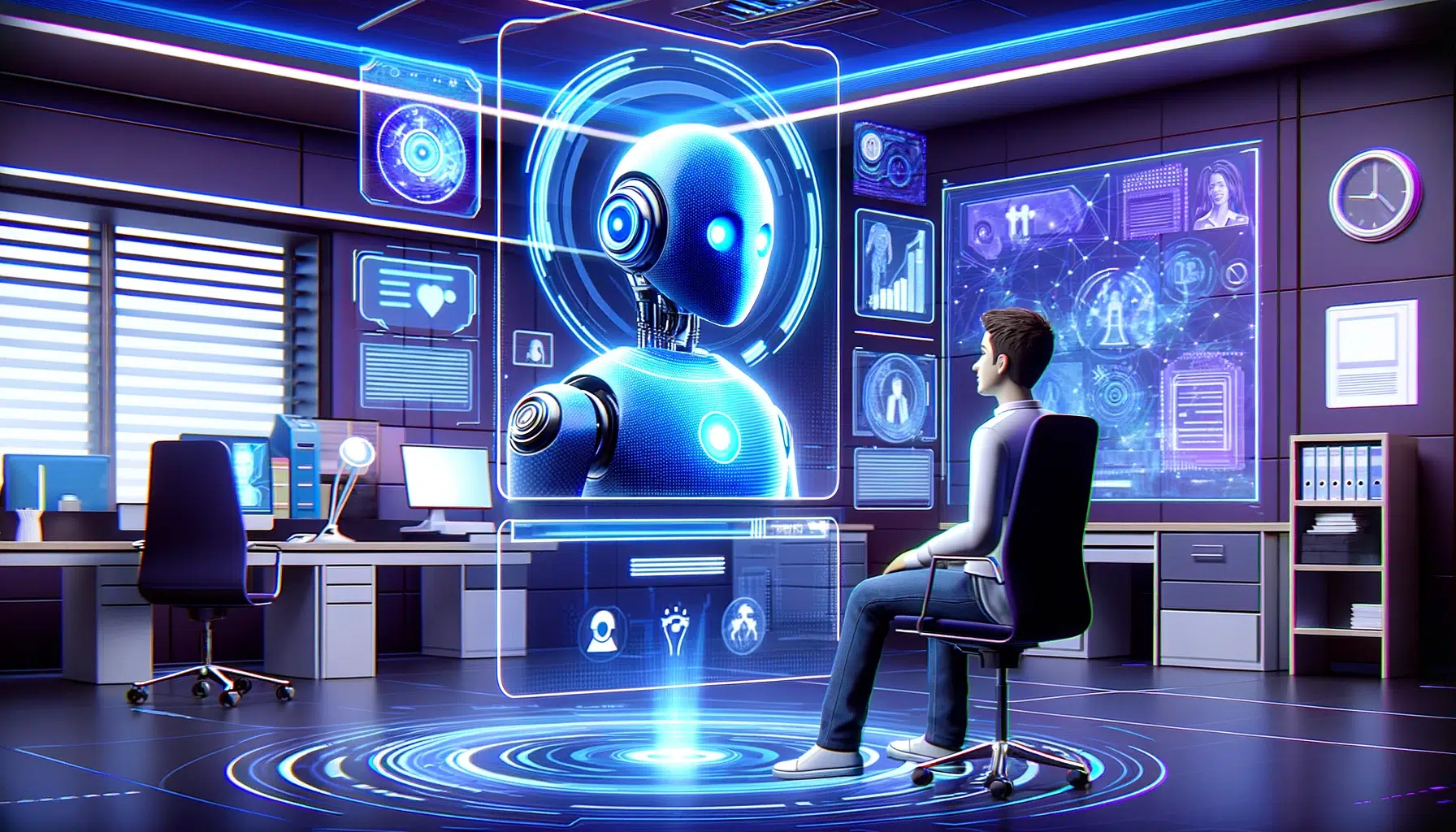The introduction of artificial intelligence (AI) into the recruitment process has opened the door to new possibilities, but it also raises concerns among human resources professionals. In particular, the use of chatbots to conduct job interviews raises questions about the implications of AI.
Chatbots are conversational robots programmed to simulate a human conversation. They can be used to ask candidates questions and record their responses. The goal is to assess the skills, qualifications, and personality of candidates quickly and efficiently. However, this method poses ethical and practical dilemmas.
The ethical issues of using chatbots
One of the main concerns is the lack of human interaction in the interview process. Candidates may feel bewildered and disengaged when faced with an impersonal interface, devoid of any interaction with a recruiter. This lack of humanity can negatively impact candidates’ experience and the company’s image.
Moreover, the use of chatbots raises the question of transparency and impartiality. The algorithms that power these conversational robots can be biased, thus reproducing prejudices and discrimination. Tests based on analyzing candidates’ facial expressions to measure their emotions can also be questioned in terms of accuracy and reliability.
The advantages and limits of chatbots
Despite these concerns, using chatbots in job interviews has certain advantages. First, they help save time by automating part of the selection process. Chatbots can ask structured questions and record candidates’ responses accurately and consistently.
Chatbots can also help eliminate human biases and ensure an objective assessment of candidates. The use of predefined and measurable criteria allows for a fair comparison between different candidates. Furthermore, chatbots can be trained to emphasize the skills required for the position rather than relying on subjective criteria.
However, chatbots have their limits. They cannot completely replace human interaction and recruiters’ intuition. Non-verbal skills, such as gestures and body language, may be lost in an interview with a chatbot. Additionally, chatbots may lack flexibility and responsiveness in the face of unforeseen or atypical situations.
Balancing AI and human interaction
In light of these questions, it is essential for HR professionals to find a balance between using chatbots and incorporating human input in the recruitment process. Chatbots can be a valuable tool for the initial filtering of applications and the collection of objective data, but it is important to allow for moments of human interaction during the later stages of the process.
It is also crucial to establish oversight and regulatory mechanisms to ensure fairness and transparency in the use of chatbots. Algorithms should be regularly evaluated and adjusted to avoid biases and discrimination.
In conclusion, the use of chatbots for job interviews raises questions among HR professionals regarding the impact of artificial intelligence. While this technology offers advantages in terms of speed and objectivity, it is important to find a balance between AI and human interaction to preserve the candidate experience and ensure a fair and relevant evaluation.






